A Glimpse Inside the Southern Baptist Archives on the Eve of Launching All the Buried Women
Why they matter and not just for the reasons you think

“Why do they let you in?”
People ask me this all the time. After having authored The Making of Biblical Womanhood: How the Subjugation of Women Became Gospel Truth as well as the forthcoming Becoming the Pastor’s Wife: How Marriage Replaced Ordination as a Woman’s Path to Ministry, I understand why they ask it. Why would a denomination like the SBC which continues to champion complementarian* theology and—from the perspective of outside observers like me—continues to handle their sex abuse crisis poorly, allow a scholar like me access to their documents.
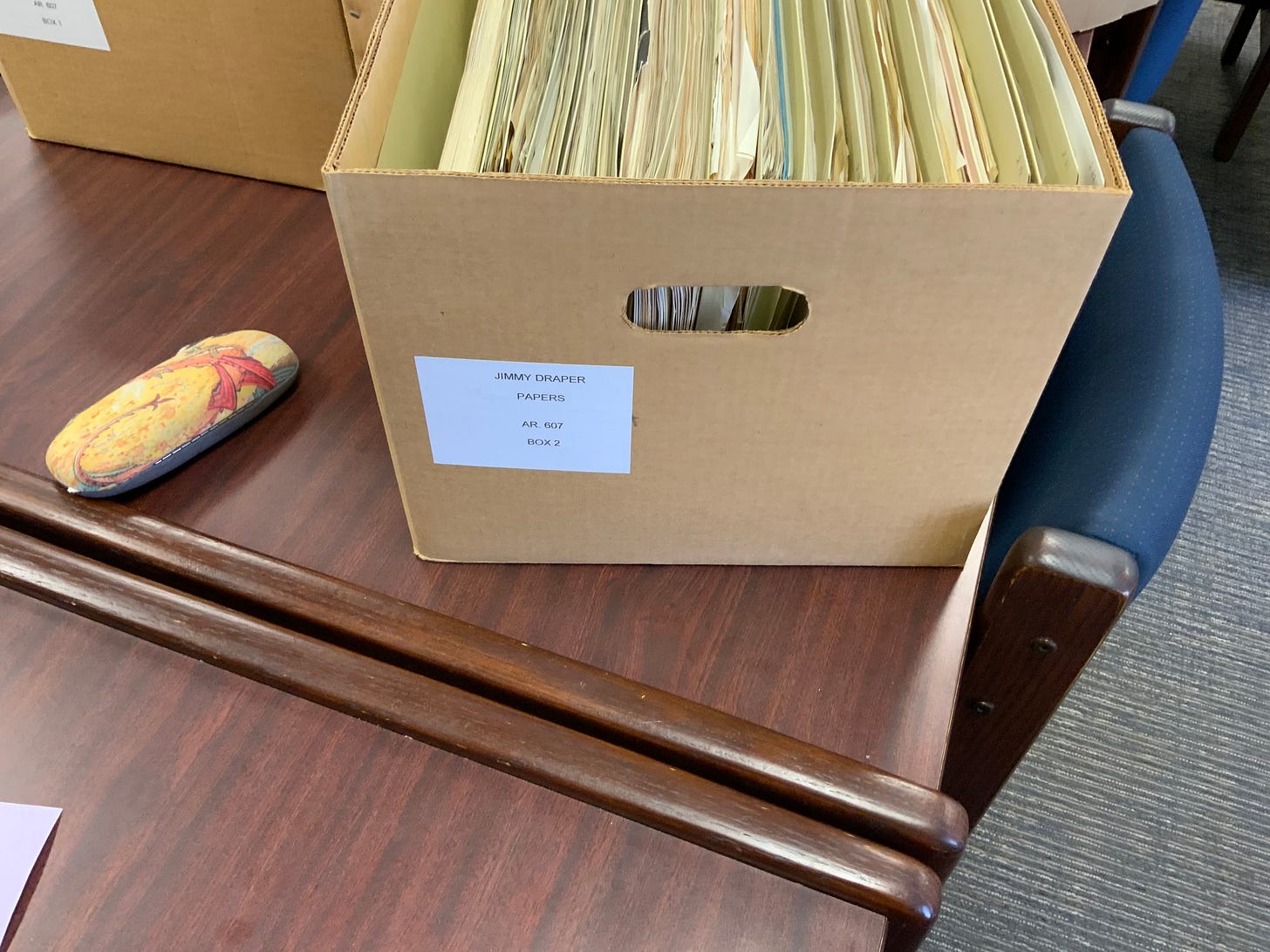
(For those unfamiliar with complementarian theology, this is how I define it in today’s episode from the Bible for Normal People: “[Complementarianism] is a theology that teaches God ordained men to lead and women to follow. And in some ways, the pastor’s wife is this woman who works to support the ministry of her husband in an unpaid role behind the scenes. And this is pretty much what complementarian theology teaches: women’s primary position is to center their lives on their husbands.”
Check out the full interview with Savannah and I about All the Buried Women.
So why do they let me in to SBC archives?
The answer is easy.
This is what archives like the SBHLA are for—the preservation, research, and the advancement of historical study. Just see this excerpt from the Southern Baptist Historical Library and Archives website:
“Purpose and Mission
The Southern Baptist Historical Library and Archives is a worldwide center for the study of Baptist history. Governed by the Council of Seminary Presidents, the SBHLA is one of the major denominational collections in the nation and serves, by assignment of the Southern Baptist Convention, as the central depository and archives of SBC records…
The purposes of the Library and Archives are:
To serve as a research center for the study of the life and history of Baptists, in particular Southern Baptists,
To collect, preserve, and make available for use a wide range of materials that document Baptist history,
To serve as the denominational archives for the Southern Baptist Convention and to collect, preserve, and make available for use the official records of the Convention and its agencies,
To assist Southern Baptist churches, associations, state conventions, and SBC agencies in the location and preservation of historical records.
…Since January, 1985, the SBHLA has been located on the fourth floor of the Southern Baptist Convention Building where it occupies more than 10,000 square feet of floor space. Its resources include thousands of books, annuals of Baptist associations and conventions, comprehensive files of Baptist newspapers, audio and video recordings, photographs, pamphlets, archival records, manuscripts, microfilm reels of Baptist historical materials, and an environmentally controlled rare book room featuring a collection of rare Bibles dating from the early 1600’s.
Facilities and Services
The Southern Baptist Historical Library and Archives is available to all researchers. Some collections have access restrictions; therefore, it is advisable to contact the staff before visiting so research needs can be met. The SBHLA online catalog, finding aids, and digital resources are available for viewing or downloading from sbhla.org..”
The archives really are available to all researchers. I have visited the SBHLA in Nashville several times and, each time, I have been generously assisted. The archives welcome academic queries, regardless of where the evidence might lead. Which is why I wrote this in the acknowledgements for Becoming the Pastor’s Wife:
“It goes without saying that this book is only possible because of the research support I received from The Southern Baptist Historical Library and Archives in Nashville, Tennessee, The Texas Collection at Baylor University in Waco, Texas, and the archives at Southwestern Baptist Theological Seminary in Fort Worth, Texas. Taffey Hall, the Director of The Southern Baptist Historical Library and Archives, welcomed me on three different occasions. She and her staff went above and beyond in providing access to the archival material I needed, even providing financial assistance through the Lynn E. May Study Grants. Taffey answered numerous emails from me with patience and precision. I could not have written this book without her guidance.”
The documents within the archives speak to the rise of the fundamentalist takeover and the current sex abuse crisis (as you will see in both the miniseries All the Buried Women and chapter 8 of Becoming the Pastor’s Wife), but that is not the only story they tell. The archives tell a much bigger story than what the SBC is often reduced to in news stories today. They tell a story of a denomination that, a few decades ago, was rather different. Two documents that Savannah Locke discusses In the introduction to the All the Buried Women podcast show this well. The first is a speaking invitation from SBC pastors’ wives to Tipper Gore (then the wife of Democrat Vice President Al Gore). The second is a debate among pastors’ wives about if being married to a pastor is the “best life.” (Spoiler—they vote that it isn’t the best life!).
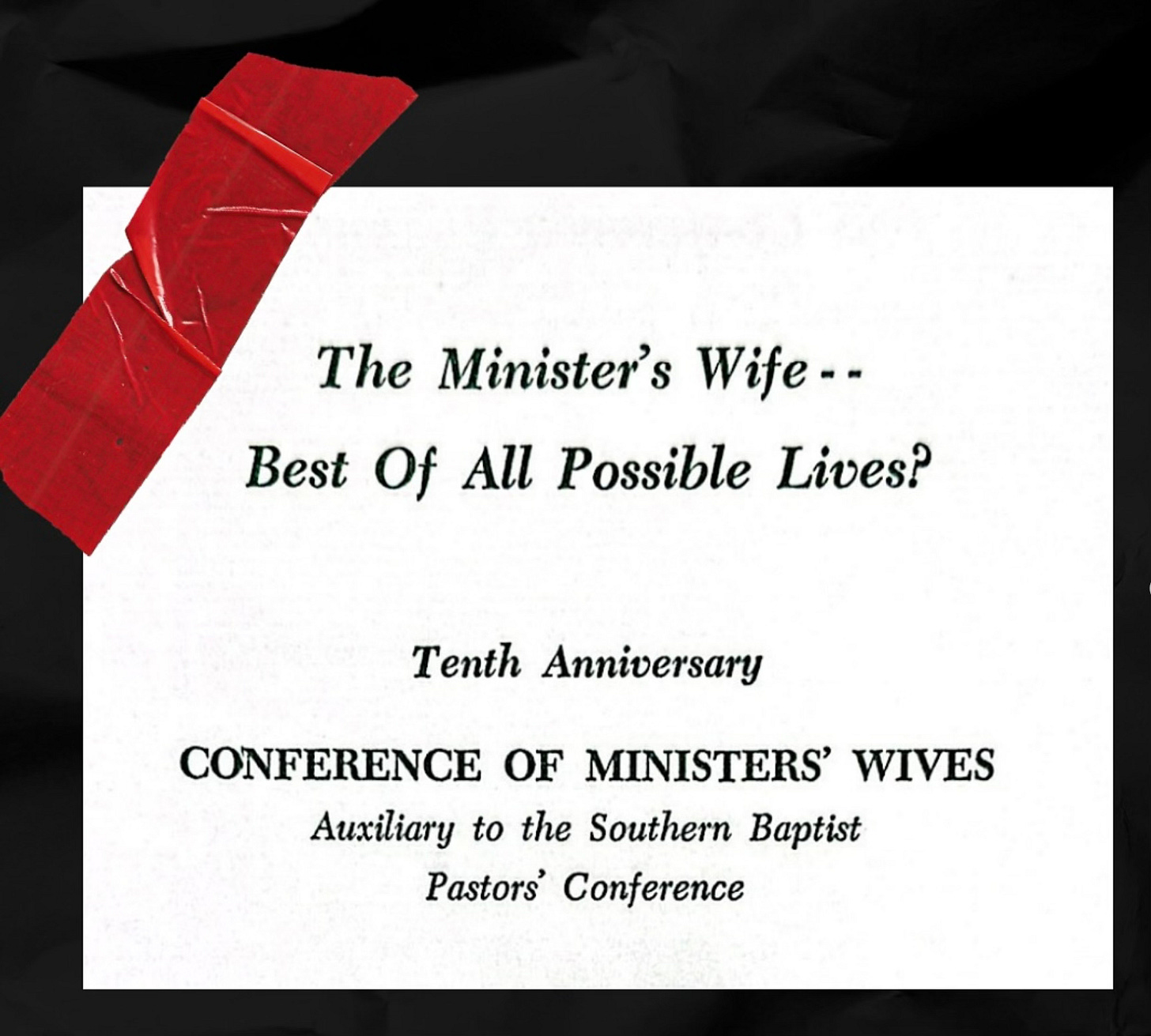
Can you imagine?
If you can’t, you should definitely listen to her describe them!
While our research does show the harm that has emerged from the SBC (especially as connected to the fundamentalist takeover), it also shows that the SBC hasn’t always been this way. It was once on a path to become a more diverse and inclusive denomination that strove for “big tent” theology. As I argue in Becoming the Pastor’s Wife, the SBC really could have taken a different path.
And this is what the archives show, So clearly. Which means that open, readily accessible archives work much more in the favor of the SBC than against it. They show how men like Paige Patterson and Johnny Hunt do not represent the entirety of the SBC story; they show that Dorothy Patterson’s version of “womanhood” as encapsulated in the 2000 Baptist Faith & Message has not always been the dominate story.
Indeed, it is what the SBC archives show about women that I find most intriguing. They show that women have never sat on the SBC sidelines (nor on church history sidelines, for that matter). Women have always been preachers, teachers, ministers, leaders, and pastors. Recent fights in the SBC over women’s ordination and how to deal with the sex abuse crisis have obscured these women’s stories, burying them under titles changed from “pastor” to “director” and labeling those who speak out as sinful, prideful, and even demonic.
But what modern SBC churches have forgotten about their own history, what some SBC leaders have tried to suppress, their own archives remember.
I think Savannah Locke says it best in one of my favorite lines from the podcast—the SBC archives show how even “buried women still sing.”
You can listen to the Introduction to All the Buried Women and an interview with Savannah and I about creating it now. The first episode of the podcast releases on March 13. Also, only one more week to preorder Becoming the Pastor’s Wife!

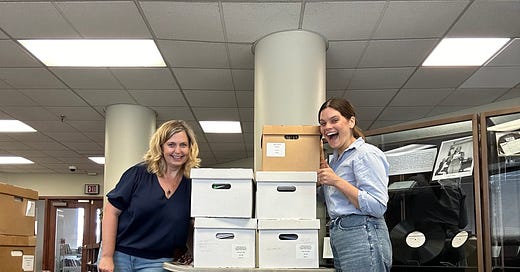


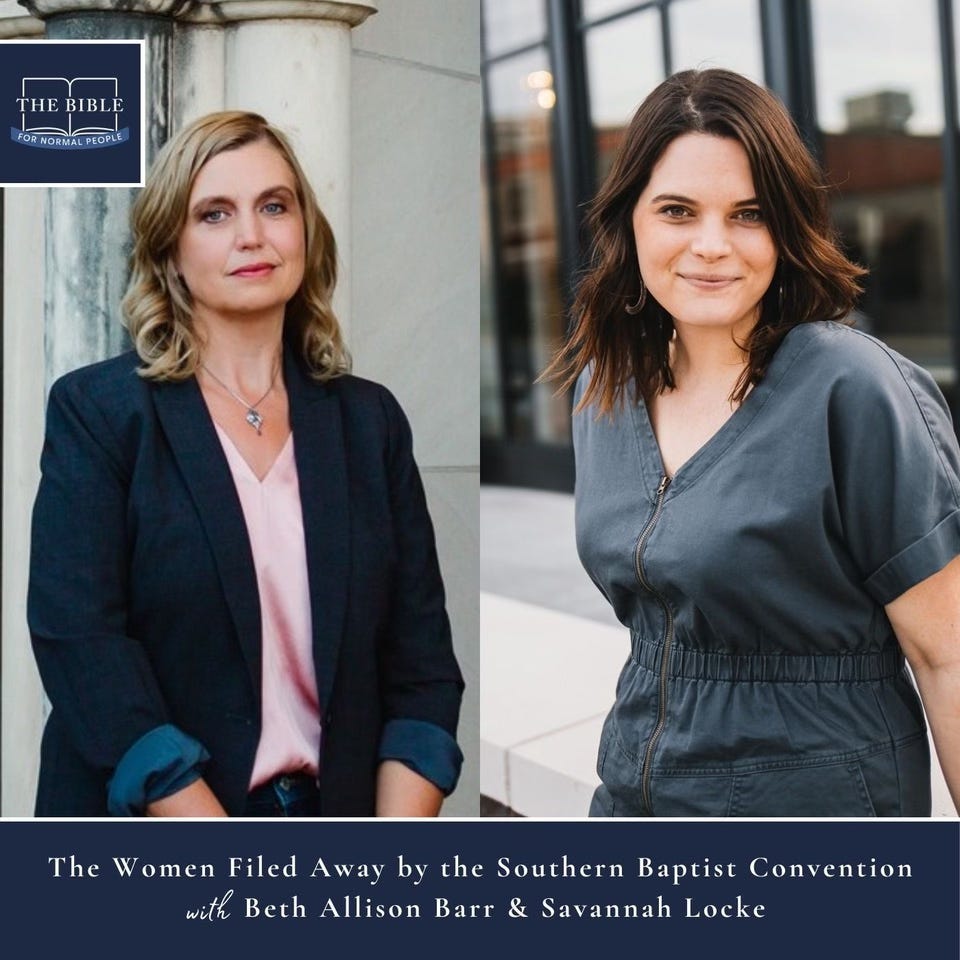
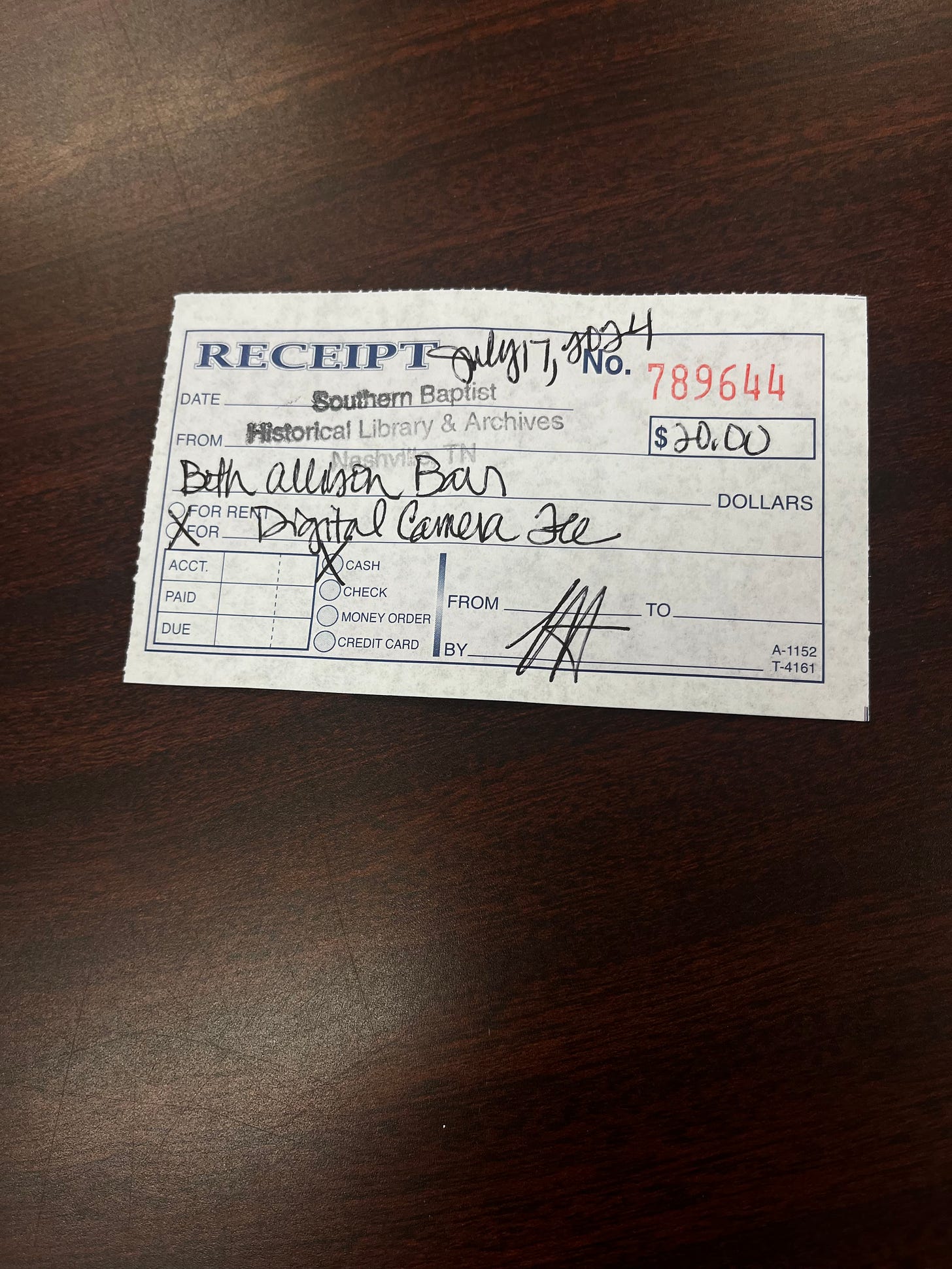
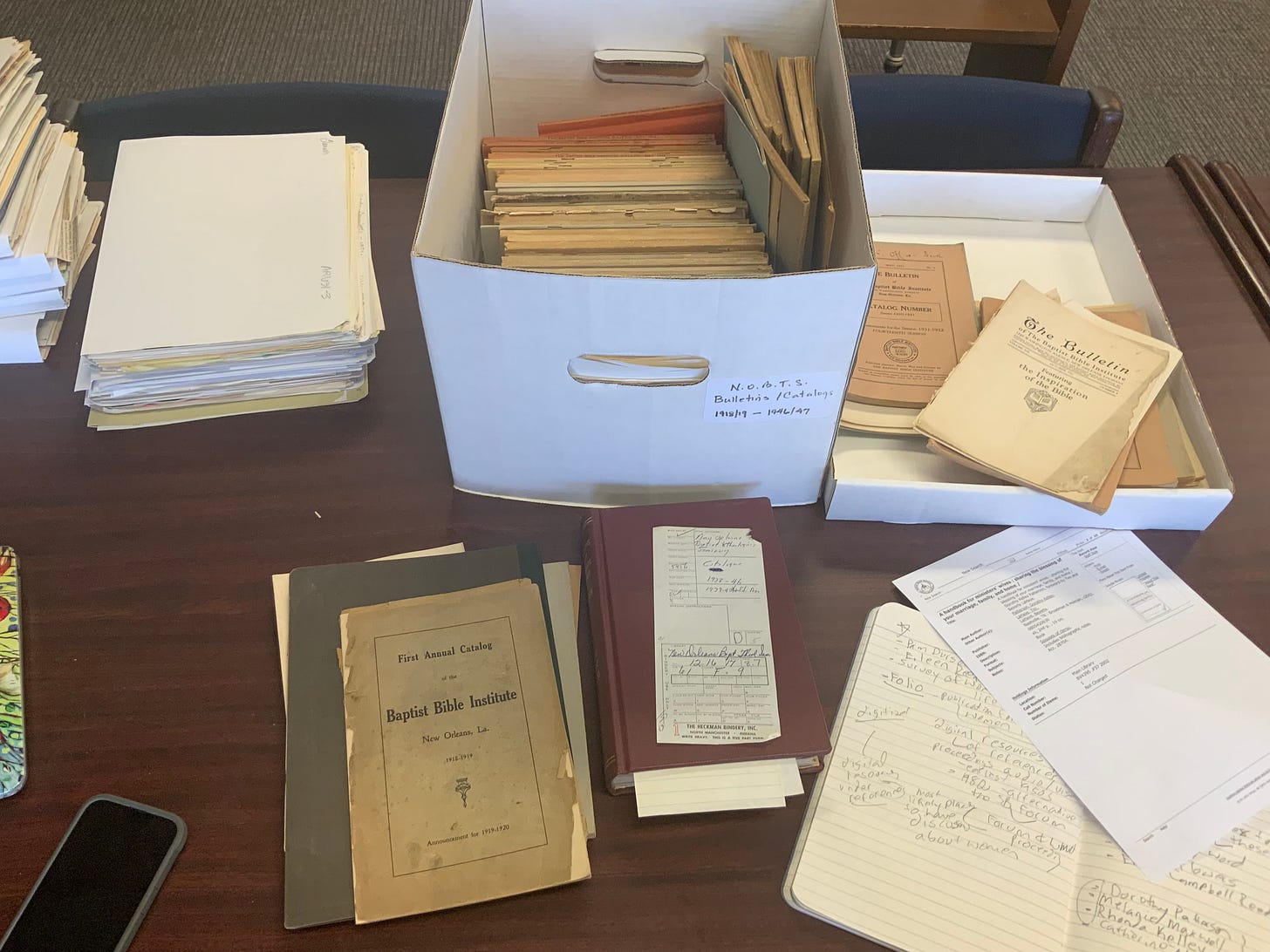

At one point I had an article that appeared in The Message that talked of the SBC’s position on abortion. It was from the early 70’s & it stated that abortion was a private decision between a women & her doctor. Very different from today’s position. Sadly, I can no longer find my copy nor the link I had to an e-copy. Did y’all find anything like this in your research?
thank you for this.
appreciate your words and these archive photos.
I’m so looking forward to All The Buried Women.